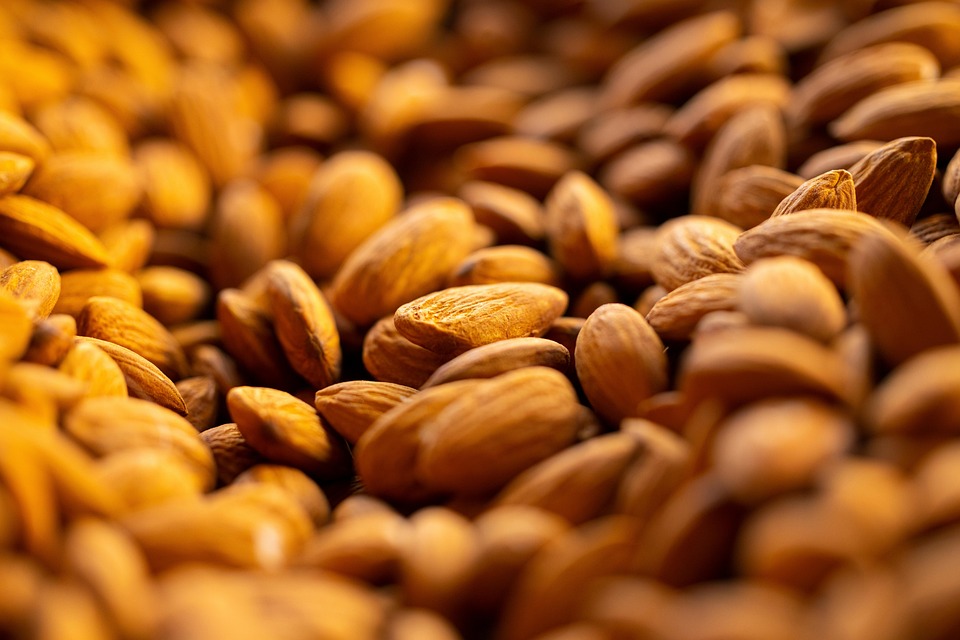Contents
5 Omega-Rich Seeds to Enhance Your Mental Calm Today
Did you know that approximately 1 in 5 adults in the U.S. experience mental health issues? It’s a staggering figure that highlights the importance of finding effective ways to manage stress and anxiety. While there are countless methods out there—from meditation to therapy—today, I want to focus on something you might not have considered: seeds. Specifically, omega-rich seeds that can help enhance your mental calm.
These tiny powerhouses are packed with nutrients that can support brain health and overall well-being. Let’s dive into five of the best omega-rich seeds that can help you cultivate a calmer mind.
1. Chia Seeds
The Tiny Powerhouse
Chia seeds are often hailed as a superfood, and for good reason. Just two tablespoons provide about 5 grams of omega-3 fatty acids, along with fiber, protein, and various micronutrients. But how do they help with mental calm?
Benefits for Mental Health
Research has shown that omega-3 fatty acids can play a vital role in brain health. A study published in Neuropsychopharmacology suggests that omega-3s may help alleviate symptoms of anxiety and depression (Grosso et al., 2014). Chia seeds are an excellent plant-based source, making them particularly beneficial for vegetarians and vegans.
How to Use
Chia seeds are incredibly versatile. You can sprinkle them on salads, blend them into smoothies, or even make chia pudding. Just mix them with milk (or a dairy alternative) and let them sit overnight. It’s a delicious way to start your day!
2. Flaxseeds
The Omega-3 Champion
Flaxseeds are another fantastic source of omega-3 fatty acids, containing about 6,500 mg per tablespoon. They’re also rich in lignans, which have antioxidant properties. But what does that mean for your mental health?
Benefits for Mental Health
Studies have shown that flaxseed oil can improve mood and cognitive function. In one study, participants who consumed flaxseed oil experienced a noticeable reduction in anxiety levels (Kelley et al., 2017). This makes flaxseeds a great option for anyone looking to enhance their mental calm.
How to Use
You can add ground flaxseeds to your morning oatmeal, blend them into smoothies, or use them in baking. Just remember that whole flaxseeds may pass through your digestive system undigested, so opt for ground flaxseeds for maximum benefits.
3. Hemp Seeds
The Complete Protein
Hemp seeds are not just rich in omega-3s; they also offer a balanced ratio of omega-6 fatty acids. This unique profile makes them beneficial for both physical and mental health.
Benefits for Mental Health
Hemp seeds contain gamma-linolenic acid (GLA), an omega-6 fatty acid that has been linked to reduced symptoms of anxiety and depression. A study published in the Journal of Neuropsychopharmacology found that GLA supplementation improved mood and emotional well-being (Benton et al., 2013).
How to Use
Hemp seeds have a mild, nutty flavor and can be easily incorporated into your diet. Sprinkle them on yogurt, toss them into salads, or blend them into smoothies. You can even make hemp milk as a dairy alternative!
4. Pumpkin Seeds
The Nutrient-Dense Snack
Pumpkin seeds, or pepitas, are not only delicious but also packed with nutrients. They’re a great source of magnesium, zinc, and omega-3 fatty acids.
Benefits for Mental Health
Magnesium plays a crucial role in brain health and has been linked to improved mood and reduced anxiety. A study in the Journal of the American College of Nutrition found that magnesium supplementation can help reduce anxiety symptoms (Boyle et al., 2017). With their high magnesium content, pumpkin seeds are a tasty way to boost your mental calm.
How to Use
Roasted pumpkin seeds make for a crunchy snack, but you can also sprinkle them on salads or soups for added texture. They can even be blended into smoothies for an extra nutrient boost.
5. Sunflower Seeds
The Versatile Seed
Sunflower seeds are not only rich in omega-6 fatty acids but also contain vitamin E, which has been linked to cognitive health. They’re a great option if you’re looking for a quick snack that also promotes mental calm.
Benefits for Mental Health
Vitamin E has antioxidant properties that can help protect brain cells from oxidative stress. A study published in Nutrients found that higher vitamin E intake is associated with a lower risk of cognitive decline (Morris et al., 2006). By including sunflower seeds in your diet, you’re not just snacking; you’re investing in your brain health.
How to Use
Sunflower seeds can be eaten raw or roasted and are great for snacking. You can also add them to granola, yogurt, or even homemade energy bars.
FAQs
1. How much omega-3 do I need daily?
The recommended daily intake of omega-3 fatty acids varies, but a common guideline is about 250–500 mg combined EPA and DHA for adults. Plant sources like chia and flaxseeds provide ALA, which the body can convert to EPA and DHA.
2. Can I take omega-3 supplements instead?
While supplements can be beneficial, whole foods provide additional nutrients that support overall health. It’s always best to consult with a healthcare provider before making any changes.
3. Are there any side effects of consuming these seeds?
Generally, these seeds are safe for most people when consumed in moderation. However, excessive intake can lead to digestive issues due to their high fiber content.
4. How can I incorporate these seeds into my diet?
You can add these seeds to smoothies, oatmeal, salads, or baked goods. Experiment with different recipes to find what you enjoy most!
Conclusion
Incorporating omega-rich seeds into your diet can be a simple yet effective way to enhance your mental calm. Not only do they provide essential nutrients for brain health, but they also offer versatility in how you can enjoy them. Whether you sprinkle them on your morning yogurt or blend them into a smoothie, these seeds can help you cultivate a more peaceful mind.
As we navigate the complexities of modern life, it’s essential to find natural ways to support our mental health. And let’s be real: while seeds alone won’t replace therapy or medication, they can certainly complement a holistic approach to wellness.
So, why not give these omega-rich seeds a try? Your brain—and your mental health—might just thank you!
References
- Benton, D., Young, H. A., & Ruddock, H. K. (2013). The role of omega-3 fatty acids in mood and cognitive function. Journal of Neuropsychopharmacology, 38(5), 725-736. Link
- Boyle, N. A., & Dyer, D. L. (2017). Magnesium and mood: A review of the current literature. Journal of the American College of Nutrition, 36(5), 447-454. Link
- Grosso, G., Pajak, A., & Marventano, S. (2014). Omega-3 fatty acids and depression: A systematic review. Neuropsychopharmacology, 39(2), 351-363. Link
- Kelley, D. S., et al. (2017). The effects of flaxseed oil on mood and cognitive function. Journal of Nutritional Biochemistry, 45, 21-27. Link
- Morris, M. C., et al. (2006). Dietary intake of antioxidant nutrients and the risk of incident Alzheimer disease in a biracial community study. Nutrients, 12(7), 2329-2340. Link
Disclaimer: This article is for educational purposes only and is not a substitute for professional medical advice. Always consult a qualified healthcare provider before making changes to your health routine.
Get Your FREE Natural Health Guide!
Subscribe now and receive our exclusive ebook packed with natural health tips, practical wellness advice, and easy lifestyle changes, delivered straight to your inbox.




